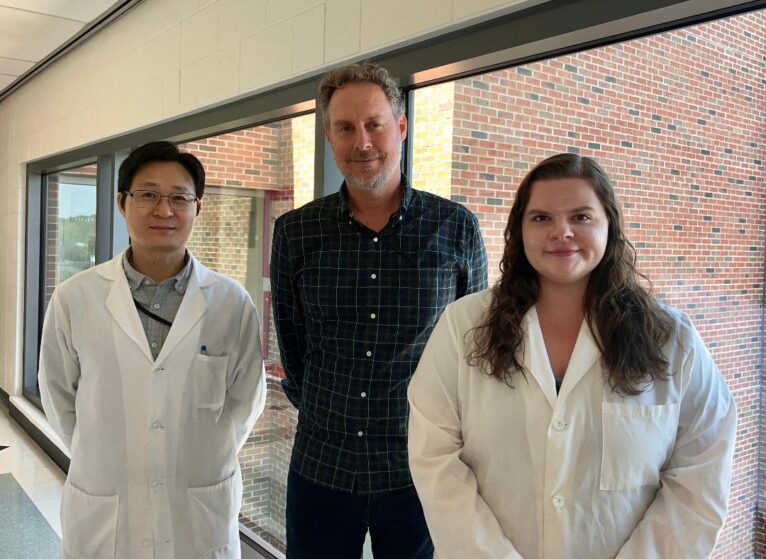New research from our Andrew C. Dudley, PhD, into the role of blood vessels in cancer tumors could both help prevent breast cancer metastasis and enhance the effectiveness of immunotherapy.
The new findings highlight the complicated role of blood vessels in tumors. As Professor Dudley noted, these vessels are important for the body's efforts to fight the cancer cells, but the same vessels can allow the cancer to spread:
“Blood vessels can act both as good guys and bad guys in a growing tumor. On one hand, blood vessels are a passageway that allows special immune cells to enter the tumor, where they will hopefully find cancer cells and kill them. On the other hand, blood vessels act as a highway for cancer cells to enter the bloodstream and spread to distant sites in the body,” he said. “Our work highlights the dual role that blood vessels can play in cancer that we hope will improve our understanding of how to best elicit anti-tumor immune responses or even prevent metastasis.”
As part of the research, Dudley and his team determined how the tumor vasculature could be targeted to help immune cells enter tumors and kill cancer cells. Blocking a particular enzyme, DNMT1, in the blood vessels reduced vessel growth and made the vessels more receptive to immune cell entry, the researchers found. This promising approach, the scientists say, could be used in combination with immunotherapy to increase the number of patients who respond to the treatment.
Dudley and colleagues also shed important light on breast cancer metastasis. Highly metastatic breast cancer cells activate other types of cells, called fibroblasts, to “remodel” the surrounding environment so that cancer cells can escape the tumor, enter the lymphatic vessels and spread to the lymph node, the researchers found. Doctors one day may be able to use drugs to interrupt this process, preventing breast cancer from spreading.
“Cancer doesn’t exist in a vacuum,” Dudley said. “In other words, cancer cells have this whole ecosystem or microenvironment where they thrive. We hope that by understanding how cancer cells exploit their microenvironment, we can perhaps develop new types of therapies, improve existing drug responses or even prevent cancer from spreading.”
